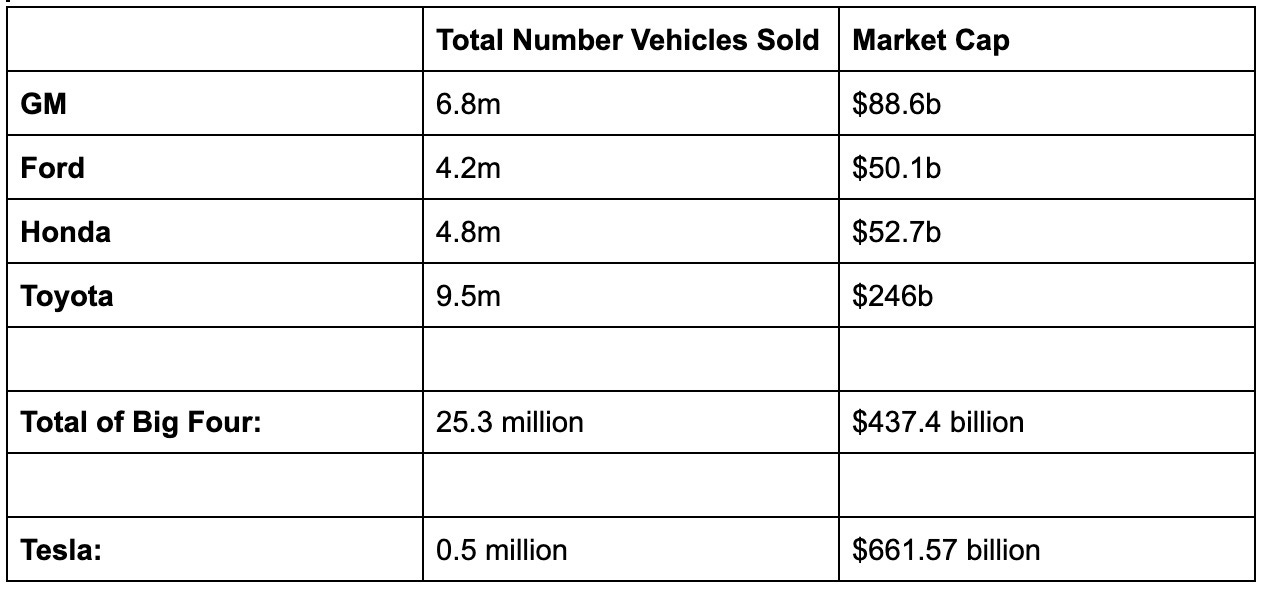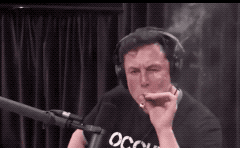Attention Economy
Concept
From The Bulwark [1]
The unifying principle that binds Red Bull and Elon Musk is attention economics: The idea that in a world moving toward post-scarcity,1 the attention of human beings becomes increasingly valuable.
And not just “valuable,” but in extreme cases, much more valuable than goods and services. For instance:
In 2020, Tesla delivered 499,550 cars. Tesla’s market cap is currently $661.57 billion. Let’s compare that with the Big Four’s numbers for 2020:
2. The Attention Economy
The unifying principle that binds Red Bull and Elon Musk is attention economics: The idea that in a world moving toward post-scarcity,1 the attention of human beings becomes increasingly valuable.
And not just “valuable,” but in extreme cases, much more valuable than goods and services. For instance:
In 2020, Tesla delivered 499,550 cars. Tesla’s market cap is currently $661.57 billion. Let’s compare that with the Big Four’s numbers for 2020:
So, you know, you could revolutionize supply chain logistics and vehicle reliability. Then you could make several million cars and trade them to consumers for money.
Or you could have a memelord as your CEO. They’re equally valid business plans.
So, you know, you could revolutionize supply chain logistics and vehicle reliability. Then you could make several million cars and trade them to consumers for money.
Or you could have a memelord as your CEO. They’re equally valid business plans.
Critique
Market Cap (stock value) is not the same as real value. Obviously, the 50x more cars that major automakers produce create much more value to society, albeit with apparently higher pollution [2] than Tesla.
Thus, we can say that memelords create large perceived value, for valid reasons - they produce significant value and add excitement to it.
Opportunity
The opportunity remains higher than ever to coordinate and share value produced - by open innovation. This would address both production and distribution. Tesla does not address fundamental distribution of wealth, and perpetuates the notion that such distribution is not possible through its promotion and continuation of proprietary development. This is a fine point, which requires the evolution of humanity in order for this point to be more widely accepted.

